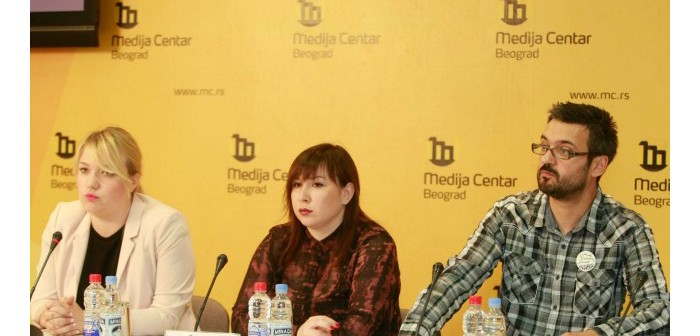Serbian human rights NGOs called on MPs to adopt a parliamentary resolution unequivocally condemning the massacres of Bosniaks from Srebrenica in July 1995 as genocide.
Ahead of the 21st anniversary of the Srebrenica massacres next month, three Serbian NGOs called on members of parliament on Friday to adopt a resolution condemning the killings by Bosnian Serb forces as genocide.
“Serbia has to say what values we represent. We cannot be leaders of reconciliation in the region if we are denying genocide,” Anita Mitic, the director of the Belgrade-based Youth Initiative for Human Rights, told a press conference.
Nemanja Stjepanovic from the Humanitarian Law Centre argued that the role of the Serbian state in the Srebrenica genocide was indisputable because it supported and financed the Bosnian Serb military.
“The Serbian nation is not genocidal and that is why Serbians have to condemn the genocide which individuals committed in the nation’s name,” Stjepanovic said.
The Youth Initiative for Human Rights, the Humanitarian Law Centre and the Belgrade-based Human Rights House also called on MPs to participate in a commemorative meeting for the victims of genocide in front of the parliament building in Belgrade on July 11.
The massacres have been defined as genocide by the International Criminal Tribunal for the Former Yugoslavia, the International Court of Justice and the Bosnian state court.
But this definition is strongly contested by Serbian and Bosnian Serb officials, who claim that the crimes did not amount to genocide.
In March 2010, Serbia’s parliament adopted a resolution condemning the massacres, but failed to call them genocide.
Last year, Mitic was one of the organisers of a planned event called #sedamhiljada, which aimed to symbolically gather 7,000 people – representing the approximate number of Srebrenica deaths – outside parliament to commemorate the 20th anniversary of the massacres.
But Serbian interior minister Nebojsa Stefanovic banned all rallies on the anniversary, citing security risks, and Mitic was charged with a misdemeanor for allegedly breaking the law by organising a public gathering without previously alerting the authorities.





